Virtual round table ”Ethics of Artificial Intelligence. How smart can we use AI?”
Article published on 03-06-2021The National Commission of Romania for UNESCO organizes on Thursday, June 3, between 11:00 and 14:00 the virtual round table “Ethics of Artificial Intelligence. How smart can we use AI?”.
The virtual meeting will bring together researchers in the field of ethics, university professors in the field of AI and AI ethics, parliamentarians, representatives of UNESCO chairs and the business environment concerned with AI ethics.
With the kindness of the French National Commission for UNESCO, Mrs. Vanessa Nurock, head of the UNESCO Department of Bioethics and AI at the University of Paris 8, will present the activities of the Department to the Romanian colleagues.
The results of the online colloquium “Ethics in AI. How smart can we use Artificial Intelligence?” will be materialized by publishing a bilingual publication (Romanian-English) which will be included in the UNESCO digital library.
A Communication and Information Module will also be created on what AI means and what impact it has on our lives, ethical aspects of the use of AI on an increasingly large scale, in all areas of activity, with the contribution of specialists having international experience.
This Module is intended to be a preamble to the adoption of the Recommendation on Ethics in Artificial Intelligence, at the 41st UNESCO General Conference in November 2021, a document of major importance and a tool for setting international standards in the field of AI.
The Special Committee of Technical and Legal Experts met in April 2021 (and will meet again on 21-25 June) to consider the draft Recommendation on the Ethics of Artificial Intelligence (AI).
At its 40th session in November 2019, the General Conference of UNESCO decided to develop an international normative instrument on AI ethics, in the form of a Recommendation. Since then, UNESCO has made a multidisciplinary, multicultural and pluralistic effort to produce a preliminary report and a preliminary draft Recommendation, shared with Member States in September 2020 for their comments. These written comments were taken into account by the Director-General of UNESCO in the preparation of her final report on the Recommendation, which contains the draft Recommendation on Ethics AI.
The negotiated and approved text will be presented to the Member States for adoption by the General Conference of UNESCO at its 41st session. If adopted, the Recommendation will be the first global instrument for setting standards in this area.
Colloquium agenda
Madlen Șerban, Secretary - General of NCR UNESCO - Opening remarks. The importance of the draft UNESCO Recommendation on Ethics in Artificial Intelligence, how we can use AI intelligently.
Prof. Dr. Vanessa Nurock, University of Paris 8, UNESCO Chair “Ethics of living and artificial processes (EVA)” - Presentation of EVA, new chair dedicated to the ethical and political analysis of recent developments regarding living and artificial processes, considering ethics a committed partner over time.
Lect. univ. Dr. Constantin Vică, Center for Research in Applied Ethics, Faculty of Philosophy, University of Bucharest - Ethics of Artificial Intelligence, between diplomats and moral bureaucrats.
Prof. Dr. Călin Enăchescu, UMFST Târgu Mureș - Ethical issues related to artificial intelligence. UNESCO's approach for the elaboration of a draft Recommendation on Ethics IA.
Dr. Manuela Catrina, director of the European School “Ovidiu Șincai” - Reflections on Ethics in AI.
Prof. Dr. Alexandru Dragomir, University of Bucharest - Why do we need an explainable AI?
Lect. dr. Mihaela Constantinescu, Center for Research in Applied Ethics (CCEA), Faculty of Philosophy, University of Bucharest - Artificial Intelligence and moral externalities.
Prof. Dr. Liviu Dinu, University of Bucharest - Ethics and computational linguistics.
Prof. Dr. Eng. Adina Magda Florea, Vice-Rector of the Polytechnic University of Bucharest - Robustness, safety and transparency for reliable artificial intelligence.
Prof. Dr. Răzvan Rughiniș, Polytechnic University of Bucharest, Challenges of AI ethics in education for innovation.
Assist. univ. dr. Cernea Mihail-Valentin, Academy of Economic Studies - Artificial intelligence in war. Challenges and dilemmas.
Ligia Bonta, sociologist, Complaints Service coordinator, Asirom - Case study: Using AI in risk inspection for CASCO optional insurance. Asirom VIG is the first insurance company in Romania and one of the first in Europe to use AI in risk inspection for vehicles.
This colloquium is part of the anniversary program of the National Commission of Romania for UNESCO "Romania and UNESCO, bridges over time - 65 years since accession".



_23-41_53-39.jpg)
_23-41_53-39.jpg)
_23-41_53-39.jpg)